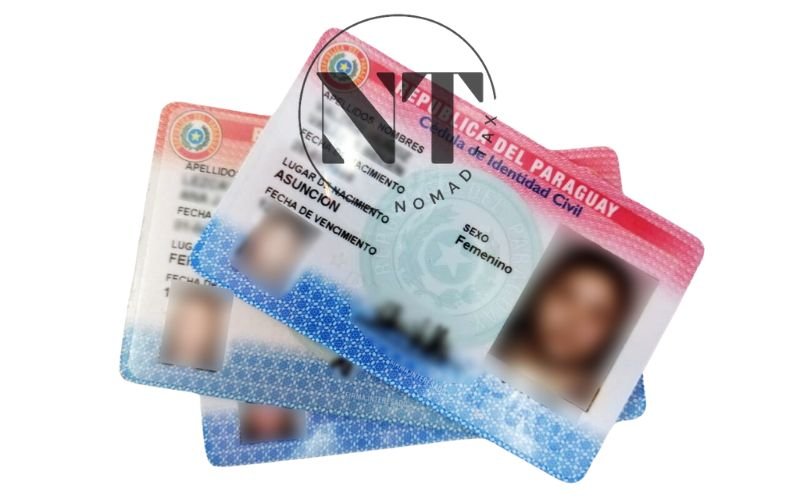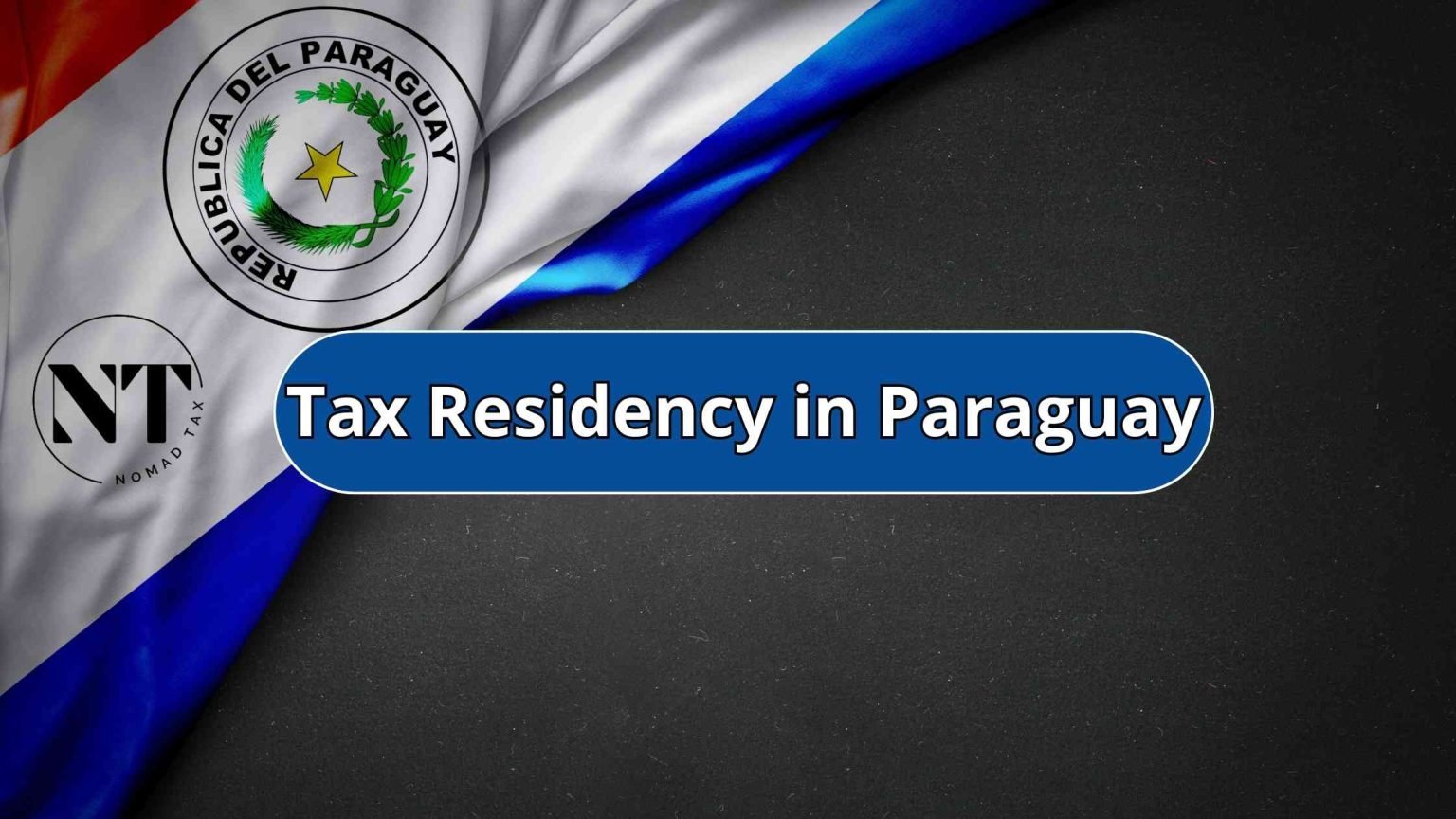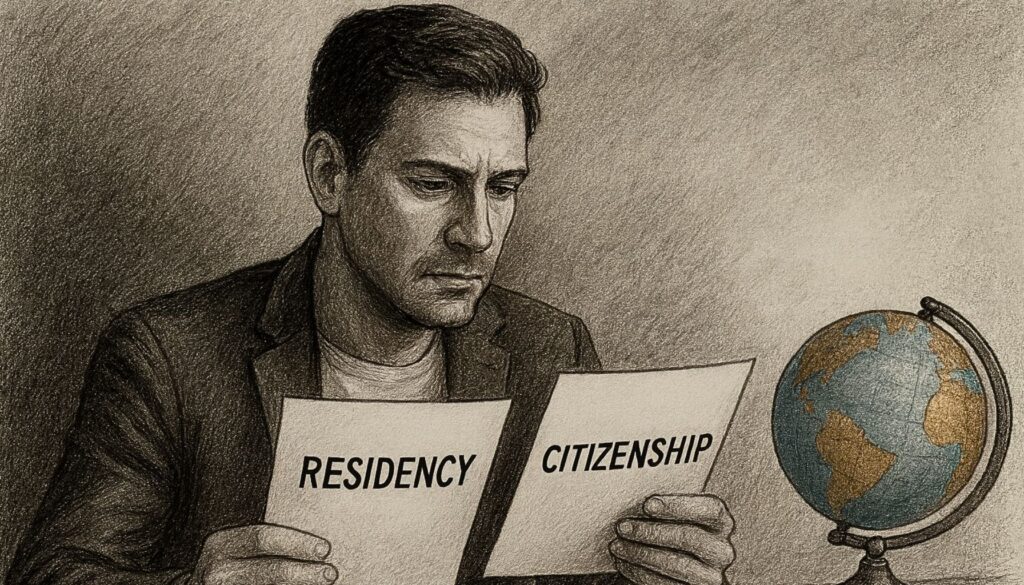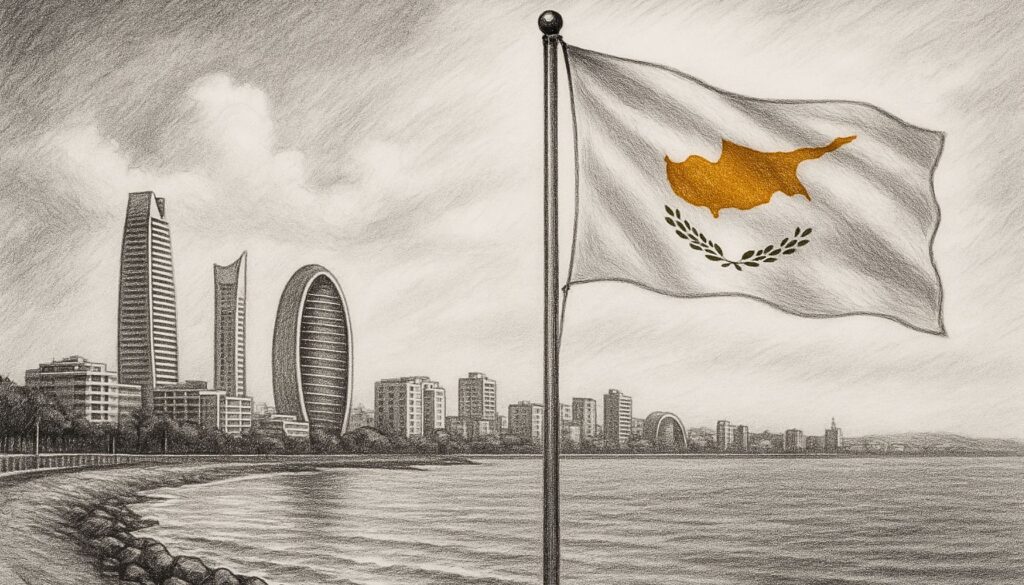Would you like to find a tax shelter that allows you to protect and multiply your wealth?
Paraguay might be the answer you’re seeking!
With its territorial taxation system, this South American country offers expatriates the opportunity to obtain the desired fiscal residence in Paraguay while enjoying a favorable tax regime.
In this guide, we’ll explore everything you need to know about permanent residency in Paraguay, Paraguay taxes, and the advantages this beautiful country offers to those seeking a fresh start in a land of opportunities.
Discover why more and more people are considering this ideal destination to settle down and optimize their fiscal situation with tax residency in Paraguay!

Indice del artículo
Key Features of Paraguay
Learn some facts about the country
- Paraguay is a South American country bordered by Argentina, Bolivia, and Brazil. Its name translates from one of the local Indian dialects as “river with crooks.”
- The country gained independence from the Spanish Empire in 1811.
- It is often called the “heart of South America” due to its central location on the continent.
- Though landlocked, Paraguay has many rivers, with the Paraguay River (the third largest river on the continent) dividing the country into two parts:
– Western: the sparsely populated Gran Chaco plain (60% of the country’s area)
– Eastern: the Paraná region, where most of the population resides. This area offers fertile lowlands and beautiful green hills.
- In terms of area (406,750 km2), Paraguay is comparable to countries like Uzbekistan, Sweden, and Germany.
- The country’s population is 7.2 million, with over half living in the metropolitan areas of Asunción and Ciudad del Este. The literacy rate is 96%, and the average age of the population is 25.
- More than 500,000 people reside in Paraguay’s capital, Asunción, with the metropolitan area housing over 2 million inhabitants. Around 10% of them are expatriates from various countries like Argentina, Brazil, Germany, Italy, and Portugal.
- The official languages of Paraguay are Spanish and Guarani, with English not widely used. For expatriates with limited Spanish knowledge, assimilation might pose a challenge, although locals are friendly and always ready to help guests practice their Spanish.
- The main economic indicators of Paraguay include:
– GDP per capita: $6,265 USD, with an average growth rate of 2% annually
– Inflation rate: 5.3% annually
– Unemployment rate: 6.3% of the population
- The national currency is the Paraguayan guarani, with an exchange rate of 7,260.6 ₲ per 1 USD. The guarani’s exchange rate has remained relatively stable over the past 20 years, averaging around 6,000 ₲ / 1 USD in 2003.
- The most significant sectors of Paraguay’s economy, contributing to 25% of the country’s budget revenues, are agriculture and industry.
- Expatriates who work remotely will find it noteworthy that the average data download speed via fixed broadband internet access in Paraguay is 63 Mbps.

Affordable Cost of Living
According to Go Banking Rates, Paraguay ranks 8th out of 112 countries for the most affordable cost of living. Most expatriates generally confirm that one can live comfortably in the suburbs of the capital with an income of $1,000-1,500 USD per month.
This amount is likely comparable to the average monthly income of a married couple in any major city. Self-employed foreigners and wealthy retirees with incomes of around $2,000 USD or more can enjoy a decent standard of living in the country. The average monthly salary of the local population is $320 USD.
Compared to neighboring countries, the basic cost of food and standard expenses for transportation, entertainment, and dining out are approximately 20-30% cheaper in Paraguay.
The cost of renting real estate is lower than in Serbia or Turkey. A 50 square meter apartment in central districts of the capital costs $500-600 USD per month. In small towns, such housing with good renovation may cost around $300 USD.
Buying an apartment in Paraguay is also quite affordable. The price of 1 square meter of housing in the metropolitan area ranges from $650 to $1,500 USD, which is one and a half times lower than in major cities in Russia.
Moving to Paraguay to obtain permanent residency is often associated with starting an agricultural business. The average cost of land suitable for building a house and engaging in some agricultural activities is around $15,000 USD per hectare.
An income of around $2,500 USD per month would ensure a high standard of living in Paraguay for a relocated foreigner.

Tax Residency in Paraguay
Yes, it is possible to obtain tax residency in Paraguay without living in the country.
This challenge affects independent entrepreneurs, digital nomads, and perpetual tourists who lack an official residence, which can be a significant disadvantage.
When opening an account at financial institutions like banks or cooperatives, demonstrating a residential address is necessary, which becomes complicated for those who travel constantly without a fixed residence.
Processing documents with government entities or applying for visas in other countries also requires a residential address. The lack of an official residence makes these procedures difficult and can lead to application rejections.
On the other hand, having residency in a foreign country can be a valuable contingency plan in times of crisis, like the current situation in Venezuela, where many citizens are trapped due to the lack of foreign residence permits. Undoubtedly, having a second residency can make a difference in one’s freedom.
It’s essential to be prepared for any eventuality, as any country can face crises that force its residents to emigrate. So, why not be prepared?
Is it not necessary to live in Paraguay to obtain this residency?
According to the current immigration law since 1992 (which has improved recently), foreign residents should not be absent from the country for a continuous period of three years to maintain their residency status.
However, in practice, the authorities do not rigorously control this.
From my perspective, comparing Paraguay with other countries that usually grant fiscal residencies and require individuals to spend at least 3 or 6 months per year on their soil, visiting Paraguay once every three years would be manageable.

In Paraguay, you are not required to report your domicile.
The domicile does not have to be physical, so you don’t have to report if you’ve moved.
A fiscal resident of Paraguay is an individual who spends at least 120 days in the country in a given fiscal year or who has established permanent residence and maintains their primary domicile in Paraguay.
Both fiscal residents and non-residents must file an annual tax return if their local income exceeds the minimum threshold.
The laws on fiscal residency in Paraguay changed in 2022, but as of February 2023, the process returned to normal and, in fact, it is easier than before to obtain fiscal identification.
The 0% tax on foreign income is still in effect.
Additionally, Paraguay does not require demonstrating economic interests.
Paraguay does not require incorporating a company within the country to apply for residency. This is a significant advantage when reducing costs for your procedures.
If you already have a company in another country, you do not have to create another one unnecessarily to become a resident in Paraguay, as you might need to do in places like Cyprus.
Moreover, Paraguay’s immigration policy is quite flexible, allowing for obtaining permanent and instant residency with accessible requirements and the possibility of citizenship after only three years.
The Economic Commission for Latin America and the Caribbean (ECLAC) considers Paraguay the economy with the best ROI in South America. Additionally, it is a member of the Mercosur Free Trade Area, with trade agreements in various regions.
Basic steps to become a fiscal resident of Paraguay:
- Foreigners must first obtain temporary residency and then transition to permanent residency after 2 years. You become a Temporary Resident once you obtain a “Cédula” or Resident ID.
- You no longer need to submit an application with a title or a deposit. If you want our agents in Paraguay to pave the way for you, contact us here.
- Our agents in Paraguay will apply for your tax ID (NIF) along with the Temporary Resident ID.
- Various global citizens, digital nomads, and remote entrepreneurs are moving to Paraguay to obtain residency because only territorial income is taxed.
- You will need a birth certificate, if applicable, a marriage certificate, and criminal background check, all with apostille or equivalent.

Tax Benefits in Paraguay
Paraguay is one of the ideal countries for those looking to optimize their taxes and obtain offshore fiscal residency, just like Panama. The country offers a favorable tax regime with low taxes on foreign and local source income.
Paraguay enjoys what is called territorial taxation. Income from abroad is not subject to taxes, while local profits are taxed at a 10% rate on the first $40,000 (converted to local currency). Beyond that threshold, only 8% tax applies to your income.
On national dividends, only half of the regular income tax rate applies at 5%. Capital gains are taxed at only 10%, while local interest income is tax-free.

Disadvantages of living in Paraguay
Foreigners who have moved to Paraguay after being accustomed to the standard of living in Europe and CIS countries point out the following disadvantages of living in the country as permanent residents:
- Not a very advanced healthcare system: Only private hospitals in the capital can provide high-quality medical care. Expatriates need to purchase health insurance. There is a shortage of equipment and personnel in public healthcare institutions. Wealthy Paraguayans and some foreigners in need of surgical treatment opt for medical centers in Mexico.
- Warm climate: Paraguay is located inland at subtropical latitudes. Far from the sea breeze, the air temperature rises rapidly. In winter, the thermometer can reach up to 32°C. In summer, it can get even hotter. On clear summer days, the temperature can reach 40°C, so locals often take afternoon naps.
- Frequent water and power cuts: As a developing country, Paraguay has infrastructure prone to accidents and sudden failures. Even luxury hotels in Asunción sometimes experience outages.
Conclusion
In conclusion, obtaining residency in Paraguay without necessarily living in the country is an attractive option for independent entrepreneurs, digital nomads, and those seeking to optimize their fiscal situation.
Paraguay offers a favorable tax regime, flexible immigration policy, and numerous investment opportunities.
The possibility of obtaining permanent and instant residency with accessible requirements, along with the option of gaining citizenship in three years, makes Paraguay a land of opportunities for those looking to diversify and secure their future.
In addition to the tax advantages and ease of obtaining residency in Paraguay, the country provides a prosperous and welcoming environment for entrepreneurs. With a steadily growing economy and various investment opportunities, Paraguay stands as a land of possibilities for those seeking to expand their business horizons.
If you are considering options to optimize your fiscal situation and seize new business opportunities, Paraguay emerges as a promising destination deserving of your attention.
If you need assistance moving to Paraguay, don’t hesitate to book a call with our advisors.
FAQ (Frequently Asked Questions)
- Is it possible to obtain residency in Paraguay without living in the country? Yes, it is possible to obtain residency in Paraguay without having to live in the country. The immigration law in effect since 1992 states that the foreign resident should not be absent from the country for a continuous period of three years to maintain their resident status.
- What are the requirements to obtain residency in Paraguay? To obtain residency in Paraguay, one must fulfill all the required documents and pay a government fee of approximately $400 USD. Additionally, documents such as birth certificates, marriage certificates, and criminal background checks with apostille or equivalent, if applicable, are necessary.
- How long does it take to obtain permanent residency in Paraguay? After obtaining temporary residency, one must wait for a two-year period to transition to permanent residency in Paraguay.
- What tax benefits does Paraguay offer? Paraguay is known for its favorable tax regime, where foreign source income is not subject to taxes, and local source income is taxed at a 10% rate, which is referred to as territorial taxation.
- What advantages does fiscal residence in Paraguay offer? Fiscal residence in Paraguay allows for zero taxes on capital gains once you become a Paraguayan resident. This appeals to many global citizens, digital nomads, and remote entrepreneurs seeking to optimize their fiscal situation.
- What is Paraguay’s immigration policy like? Paraguay’s immigration policy is notably liberal, making it easy to obtain permanent and instant residency with low requirements. Additionally, foreign investors have the same rights and guarantees as locals, with no restricted areas or discrimination.
- What happens if the resident is absent from the country for an extended period? According to immigration law, the foreign resident should not be absent from the country for a continuous period of three years to avoid losing their residency status. However, in practice, authorities do not rigorously enforce this.
- What documents are required to obtain residency in Paraguay? To obtain residency in Paraguay, documents such as birth certificates, marriage certificates, and criminal background checks with apostille or equivalent, if applicable, are necessary.
- How has the process for fiscal residency in Paraguay changed? The laws on fiscal residency changed in 2022, but as of February 2023, the process returned to normal, and obtaining fiscal identification became even easier, while the 0% tax on foreign income remains in effect.
- What opportunities does Paraguay offer for foreign investors? Paraguay is a land of opportunities with its low and territorial tax system, affordable cost of living, and a growing economy. It offers equal rights and guarantees for foreign and local investors, making it an attractive choice for establishing businesses and planting diverse strategic flags.
- Is it not necessary to live in Paraguay to obtain this residency? According to the current immigration law since 1992 (which has improved recently), foreign residents should not be absent from the country for a continuous period of three years to maintain their residency status. However, in practice, the authorities do not rigorously control this.
If you want to know more about us, do not hesitate to follow our Youtube channel



